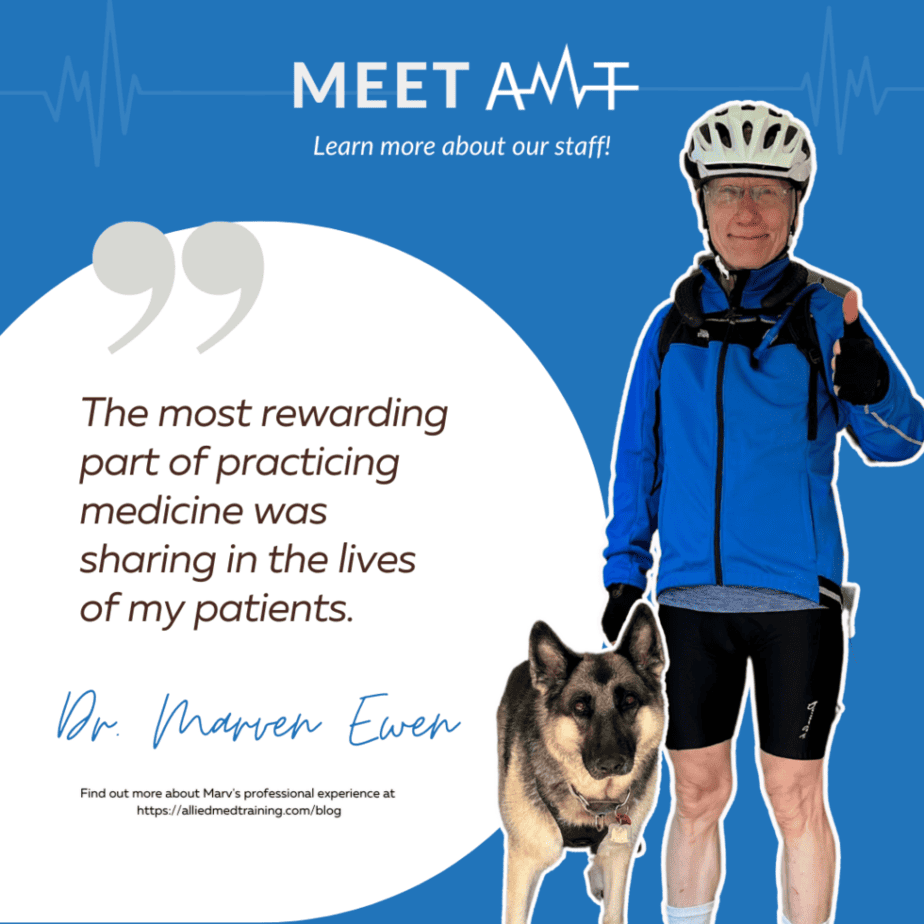
When/why did you first become interested in becoming a doctor/working in the medical field?
At the time I started to think about going to medical school I was an undergraduate with a major in psychology. I was interested in a career working with people.
I initially thought of becoming a clinical psychologist but I found all the classes in statistics and methodology rather dry. I looked into psychiatry and found out I had to become an MD first. During medical school, I discovered I liked medicine, especially emergency medicine, better than psychiatry.
I initially thought of becoming a clinical psychologist but I found all the classes in statistics and methodology rather dry. I looked into psychiatry and found out I had to become an MD first. During medical school, I discovered I liked medicine, especially emergency medicine, better than psychiatry.
Tell us about your experience in the medical field. What jobs have you had?
After medical school, I did a residency in Family Medicine. At the time I finished medical school most ERs were staffed by family doctors. During residency I also moonlighted as an ER physician at a trauma center. After residency, I practiced in rural Saskatchewan (Canada) then in Minnesota.
My practice included clinic, hospital and ER shifts, as well as obstetrics. In my Saskatchewan practice, ground transport time was over 2 hours to a tertiary care center and neonatal transport team was 4 hours away by fixed wing aircraft. That meant it was up to me to keep premature babies and other sick neonates alive until the transport team arrived. I would ride occasionally with the ambulance when transferring critical patients as ground transport was staffed only by EMTs.
When I challenge our EMT students with a scenario that the ambulance has broken down, it is based on my experiences being on broken ambulances!
My practice included clinic, hospital and ER shifts, as well as obstetrics. In my Saskatchewan practice, ground transport time was over 2 hours to a tertiary care center and neonatal transport team was 4 hours away by fixed wing aircraft. That meant it was up to me to keep premature babies and other sick neonates alive until the transport team arrived. I would ride occasionally with the ambulance when transferring critical patients as ground transport was staffed only by EMTs.
When I challenge our EMT students with a scenario that the ambulance has broken down, it is based on my experiences being on broken ambulances!
What is the most rewarding part about working in medicine?
The most rewarding part of practicing medicine was sharing in the lives of my patients.
What is your favorite part about working for Allied Medical Training?
My favorite part about working for Allied is teaching in class and seeing the transition from that “deer in the headlights” look on students faces at the beginning of the week to see them becoming skilled EMTs by the end of the course.
If you could give advice to someone looking to become an EMT, what would you tell them?
Talk to as many people in the medical field that you can. Get a sense of what the work is like. Find out what EMTs enjoy and what they find challenging.
If you could have a superpower, what would it be?
If I could have a super power it would be a photographic memory. The ability to remember every page I have every read, the name of every patient I ever saw and every student I ever taught. That would be fantastic!

